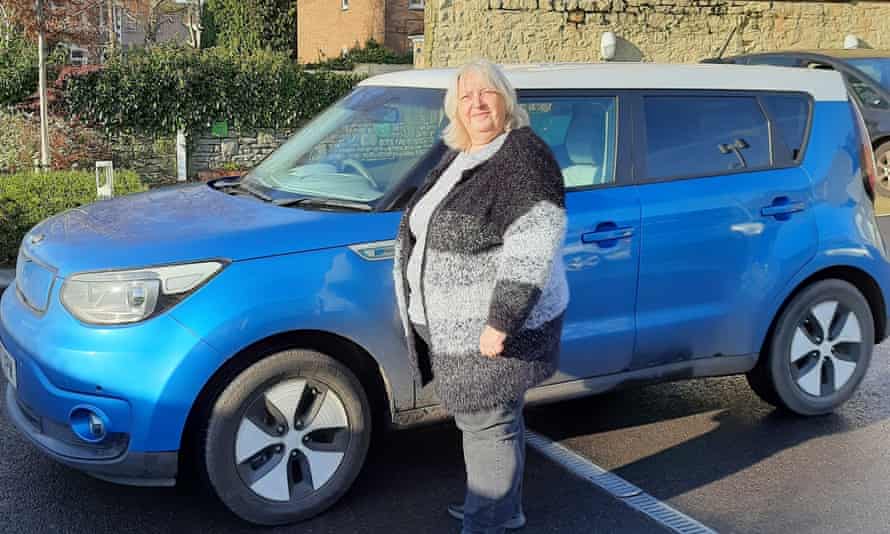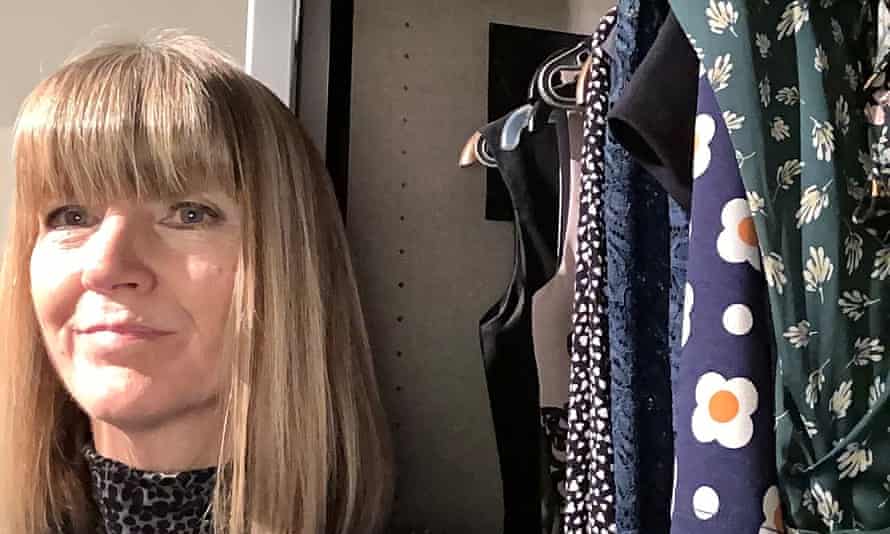At the start of 2020, Sue Peachey could never have predicted how her life would change over the next 12 months. She was one of 108 people to take part in the UK’s first climate assembly earlier in the year, spending four weekends learning about a range of environmental issues before producing a final report of recommendations.
“The first weekend changed me really. I thought, ‘Oh my God, [climate change] is really going to happen,’ she said. “It made me want to learn and to live my life greener.”
Her first step was to buy an electric car, something she admits she knew very little about. “The only electric vehicle I was aware of was a milk float,” she laughed. She was frustrated by how difficult it was to find information, even from the car salesman at her local garage who couldn’t answer her questions, but as soon she as she gave the electric vehicle a test drive she was “convinced it was definitely the way forward”.

Next was to figure out a way to pass on what she had learned at the assembly, during which participants produced recommendations, including a tax on frequent-flyers, a ban on selling SUVs, and a cut in meat consumption.
When she saw some openings for councillors at her parish council in Batheaston, she decided to give it a shot. “I thought I could encourage and support my local community to make some greener choices,” said Peachey, who has already used her role to help declare a climate emergency in the area. “I’m no expert and I probably can’t remember half the things they told me [in the assembly], but all I know is climate change is real, it is going to happen and we all need to make changes to our lives.”
She’s not the only participant to have made major life changes after taking part. Linda, 59, who asked that her full name not be used, has decided to set up a sustainable secondhand clothing business after leaving her office job earlier in the year. “I didn’t realise how much fashion contributed to climate change. I think 10% of annual global carbon dioxide emissions are from the fashion industry,” she said. “I thought it was something I could address personally.”

She has taken a business course to prepare herself for the venture which she hopes to get off the ground in spring, something she never anticipated earlier in the year. “My family can’t quite believe what I’m going to be doing, but they’re all behind me,” she said.
Other participants’ lifestyle changes have not been quite as drastic but have still had a profound impact. Max, 17, the assembly’s youngest member, who also asked for his full name not to be used, became a pescatarian after learning how meat-eating was having a negative effect on the planet – despite the jibes of his school mates. “My friends thought it was stupid at first, but over time they’ve got used to it,” he said. “I just saw how much carbon dioxide was released from each type of meat and I thought, ‘Wow, this is something I need to think about a lot more’.”

Charley Winter, 26, from Northamptonshire, works in PR and used to jetset around the world on about six holidays a year to indulge her love of travelling – but when the pandemic is over, she doesn’t plan on going back to normal. “It needs to change. If it does negatively impact me I understand that and I’m willing to make changes in my life for the better,” she said, adding she plans to rethink how many flights she takes and go on more UK-based holidays in the future.
Although some participants said it was too early to gauge the impact of the Climate Assembly report, many were pleased with how it had been received by the government and said they felt the recently announced 10-point green plan mirrored some of their suggestions.
But all agreed the climate knowledge they gained from the assembly has empowered them to make their own decisions, and stressed the need for better education across the population. “Everybody should receive something in the post from the government informing them of the changes they can make, because a lot of people don’t realise the small things they do make a big difference,” said Linda.

In its Sixth Carbon Budget, published earlier this month, the government’s statutory advisers, the Climate Change Committee, said: “The experience of the UK climate assembly shows that if people understand what’s needed and why, if they have options and can be involved in the decision-making process, they will support the transition to net zero.”
This is most important for older generations, said Peachey, who would not have been taught about the climate crisis in school. For her, the experience has been more transformative than she ever anticipated.
“I’m 57, I probably thought this time last year my days of going to meetings and discussing and debating were over, and here we are a year later, I’ve done the climate assembly and I’m now on the parish council,” she said. “Who knows what’s next? But it’s definitely awakened me.”